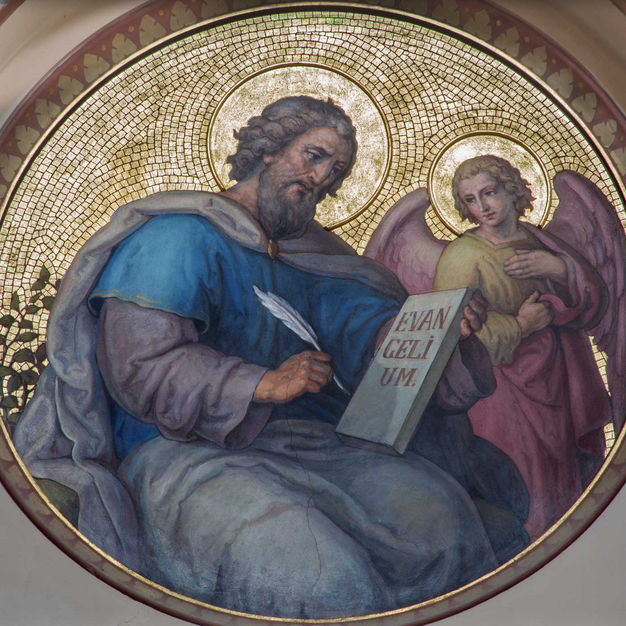
Timothy: The Pastor's Primer
Ray C. Stedman
While Second Timothy represents the last word we have from the pen of the Apostle Paul, First Timothy was written a few years earlier, probably immediately after the apostle had been imprisoned in Rome for the first time. After he was released, he wrote this letter to the young man whom he had won to Christ years before when he was preaching in Timothy's home town of Lystra. Timothy was probably no more than sixteen years old at the time. He accompanied Paul on his second journey and was a faithful minister and son-in-the-faith with the apostle for the rest of his life.
- Guard the Teaching (1 Timothy 1:1-7)The Apostle Paul's two letters to Timothy, together with his letter to Titus, are often called the "Pastoral Epistles." This is appropriate, in one sense, because these letters were written to young pastors who were involved in the leadership of churches. They constitute, therefore, a kind of handbook for pastors. But I prefer to call the letters the "Filials," rather than the "Pastorals," because filial has to do with sonship, and that is what Timothy and Titus were -- sons in the faith of the Apostle Paul. He had led them both to Christ. They were very dear to him, and they had shared many hardships with him on his journeys around the Roman Empire.30 September 2018, 12:00 am
- Awful Lawfulness (1 Timothy 1:8-11)When I was in Nashville, Tennessee, last week, I noticed that city, like many American cities, seems to have a church on every street corner. From outward appearances, it would seem that our cities are filled with vital Christianity. But that is not the case, because those buildings do not represent, except in but a few cases, any vitality or effectiveness whatsoever. For the most part, those buildings are often empty, and held in contempt by secular society. Their services are pedantic, dry, appallingly dull and dreary. People stay away from them in crowds!29 September 2018, 12:00 am
- The Model Leader (1 Timothy 1:12-17)In the closing days of his ministry, the Apostle Paul left Timothy in Ephesus in order to correct some of the conditions in the church there. Paul went on into Macedonia, from where he wrote this first letter to Timothy. In his instructions, the apostle speaks not only to Timothy, but to all believers in every generation and to all churches in all ages.28 September 2018, 12:00 am
- Wage the Good Warfare (1 Timothy 1:18-20)It is sometimes helpful to pick out certain verses of a biblical passage which summarize in concise terms what the passage is all about. We have a phrase which does just that in this section from Chapter 1 of Paul's first letter to Timothy, beginning with Verse 18:27 September 2018, 12:00 am
- The First Thing -- Prayer (1 Timothy 2:1-7)The first assignment the Apostle Paul gave to Timothy in regard to the church at Ephesus was to correct the teaching, which had begun to drift from the apostolic revelation into controversial areas that were destructive to faith. Timothy was to set that straight, using Paul as his model. He was also to stress the need for obedience -- that people actually do what they teach. That is always the first step toward vitality in a Christian's experience.26 September 2018, 12:00 am
- Adam's Rib or Women's Lib? (1 Timothy 2:8-15)We are approaching one of the major battlefields of Scripture, the controversial passage from Chapter 2 of Paul's first letter to Timothy. Many have fought and still are fighting over this section. We have to approach it with great care, and yet deal with it thoroughly. I want to remind you of one fact which we must hold clearly in mind: The subject under discussion in this passage, as well as in this entire chapter, is prayer. Paul is writing about the worship of the congregation when they come together, especially as that worship centers on and focuses in prayer. So the passage that touches on women and on their ministry among us grows out of that subject.25 September 2018, 12:00 am
- The Lord's Leaders (1 Timothy 3:1-7)There is a wide spectrum of titles used for leaders of churches in this country. The Baptists have deacons; the Presbyterians have elders; the Methodists have stewards, bishops; Episcopalians have rectors and vicars (whatever they are); and the Catholics say that priests ought to be in charge. Many denominations refer to their leaders as ministers. As I was thinking of that, I wondered whatever became of the word parson? It has been a long time since I heard anybody called a parson, although that used to be common in this country. (That is where the word "parsonage" -- the house the parson lives in -- comes from.)24 September 2018, 12:00 am
- The Lord's Servants (1 Timothy 3:8-13)I find much confusion today, even here at PBC, about who the leaders of the church ought to be, and what these terms, elders, deacons, and pastors, mean. Anne-Marie Ritchie was telling me yesterday that when their son Roddie was about eight years old or so, at school one day he was asked to write down what his father did. Roddie wrote, "My father is a rabbi, or a priest, or a minister, or something like that." Ron is still trying to figure that out!23 September 2018, 12:00 am
- God's Chosen Instrument: The Church (1 Timothy 3:14-15)I flew out of Denver, Colorado, to Peoria, Illinois, a few years ago. Not very many people go to Peoria, but I did, and I flew on Ozark Airlines because I wanted to get there the worst possible way! In the plane I picked up the little magazine that every airline has. My attention was caught by an advertisement on the back page that said in large letters, "When you understand that you can change the world, your life will never be the same again." Naturally, I was curious to know what it was that would make such a dramatic difference. Reading further, I saw that it was an advertisement for Playboy magazine. That irritated me a little at first, but then I thought that it is really true: Playboy magazine has changed the world.22 September 2018, 12:00 am
- The Central Glory (1 Timothy 3:16)This morning we recited together the Nicene Creed, which came from the fourth century. We joined with the confession of faith of Christians from those struggling days of the church, when they were hammering out on the anvil of controversy the theological viewpoints and teachings of the church. But in the passage from the third chapter of First Timothy, which we will be studying today, we are looking at a single verse that comes right out of the 1st century, clear back to the very beginnings of the church. Many scholars feel this verse constitutes a confession of faith which the early church recited. In fact, because of the rhythm of its phrases, the scholars think that this was sung as a hymn.21 September 2018, 12:00 am
- Fraudulent Faith (1 Timothy 4:1-5)Chapter four of First Timothy begins with dramatic and intriguing words. The apostle says:20 September 2018, 12:00 am
- More Episodes? Get the App
Your feedback is valuable to us. Should you encounter any bugs, glitches, lack of functionality or other problems, please email us on [email protected] or join Moon.FM Telegram Group where you can talk directly to the dev team who are happy to answer any queries.
 1 John: The Fruit of Fellowship with Christ
1 John: The Fruit of Fellowship with Christ
 Acts: An Unfinished Story
Acts: An Unfinished Story
 Mark: He Came to Serve
Mark: He Came to Serve
 Matthew: Behold Your King!
Matthew: Behold Your King!
 Colossians: Power to Endure with Joy
Colossians: Power to Endure with Joy
 Thessalonians: Hope for a Hopeless World
Thessalonians: Hope for a Hopeless World